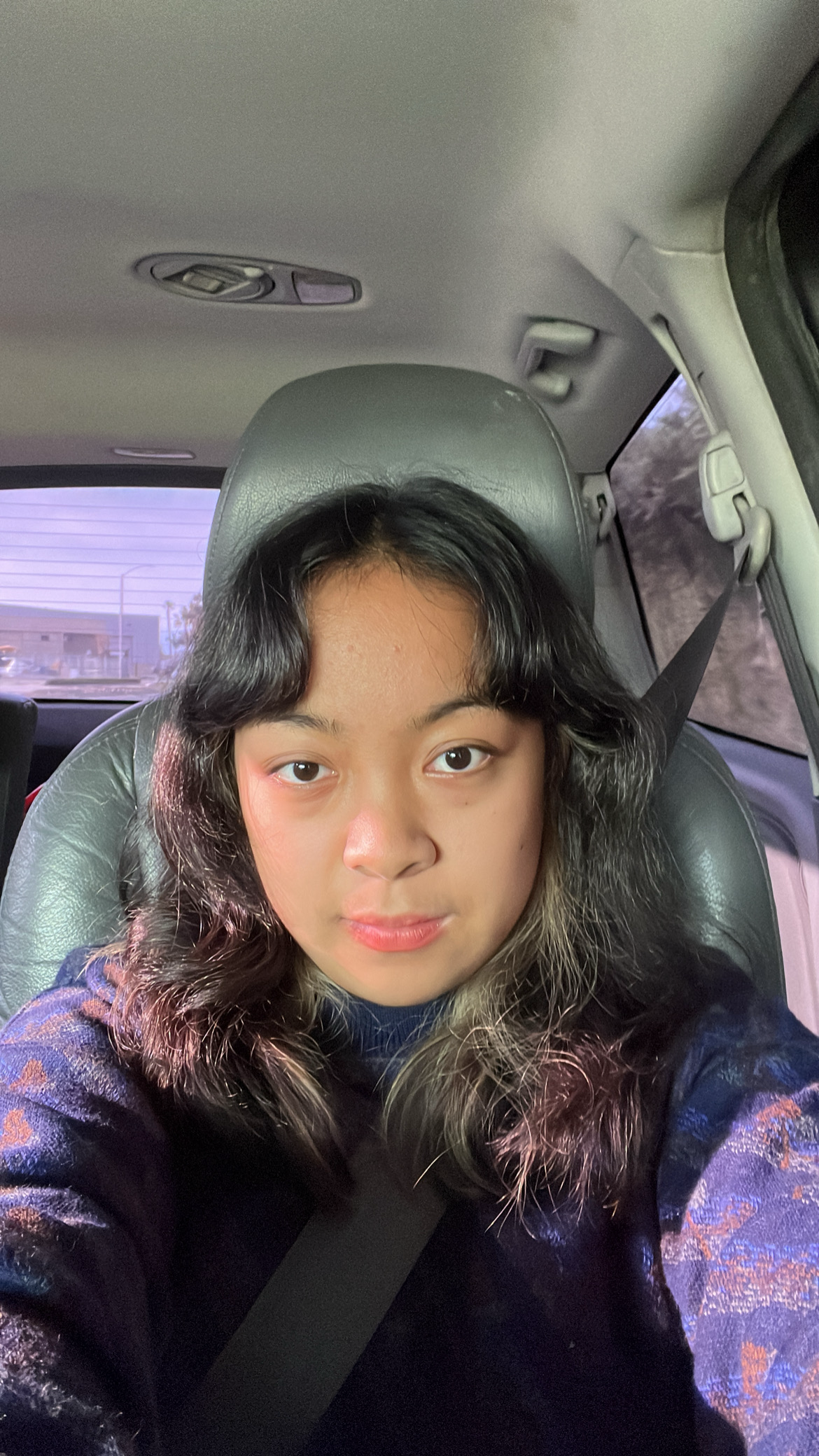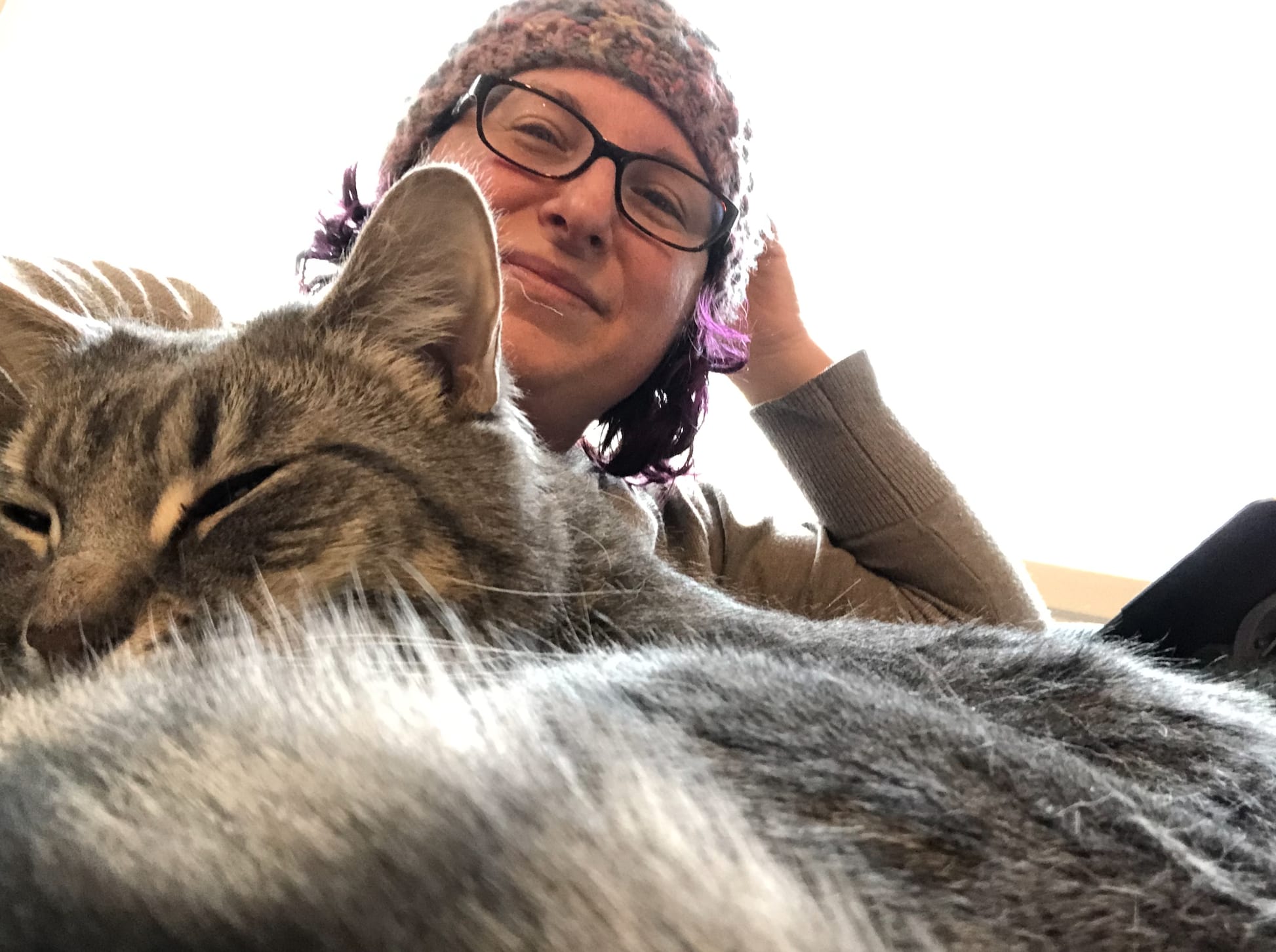National Poetry Month Contest Winner 2022
Andrew NajbergIn reading the rush of poems for this year’s #napomo contest, I tried to keep first & foremost our call — to think about navigating space & place — alongside the concerns of poetry: well-wrought language, lines and phrases that engaged, an urgent voice. It is always so hard to choose a poem from the poems that call out for reading and re-reading, and this year was another year of poems that made it so so difficult.
The selected poems below, both the winner and the very Honorable Mentions, engage with spaces & places that are intimate and public. The switch in each of the poems between those modes—what others may see or hear, and what the speaker knows—are integral to how the poems work. In the winning selection, “Fighting Fermi” by Andrew Najberg, the poem begins with a response to Fermi’s paradox and casts the poem’s consciousness wide to think about life elsewhere: other planets, other galaxies, and beyond. It then telescopes in to one hospital room, a solitary man so worn by grief-in-action that he is undone by a vending machine, to the moments after loss when what we have to contemplate is not so much cosmic, but minute—the hands of the beloved and how to show care. The poem takes up space on the page, and earns that space.
In the Honorable Mention poems by Dina Miranda, Shana Ross, C. Prudence Arceneaux, and Carl Boon, there exist again these shifts between intimate spaces and public places—what is meant by voice? how are we bound? how is land and memory delineated? how do we use language to protect and distance? In the hands of these powerful poets, these large questions are handled deftly.
Please also read the Editor’s Selections shared throughout April to engage with more extraordinary poems & poets responding to our call.
—C. Kubasta, Editor, BMP Voices Poetry Month
Winner
“Fighting Fermi” by Andrew Najberg
Fighting Fermi
by Andrew Najberg


Andrew Najberg is the author of the collection of poems The Goats Have Taken Over the Barracks (Finishing Line Press, 2021) and the chapbook of poems Easy to Lose (Finishing Line Press 2007). His individual poems have appeared in North American Review, Asheville Poetry Review, Cimarron Review, Another Chicago Magazine, Nashville Review, Louisville Review, Yemassee, and many other journals both online and in print. His short fiction appeared in Fleas on the Dog, The Wondrous Real, Bookends Review, and Psychopomp Magazine. He received an MFA in poetry from Spalding University, an MA in creative writing from University of Tennessee at Knoxville, and he is the recipient of an AWP Intro award. Currently, I teach for the University of Tennessee at Chattanooga where he also assists with the Meacham Writers’ Workshop.
Short List
“bite the tongue” by Dina Miranda
“It is the nature of knots to tighten” by Shana Ross
“Just Inside the Gate” by C. Prudence Arceneaux
“Adverbs in the World” by Carl Boon
bite the tongue
by Dina Miranda
one phoneme dictates
an othering; a slip
of the tongue cements
a hole in the ground.
quiet, you old precious
throat, ancient gold dripping
between your jaws. we must
take what we do not want
to keep what we have.
feet planted firm and lips
shut over smiling teeth
gritted for your and my
and their sake, a future,
an un spoken promise
of the mother land. but
what would she want more
our flattened vowels or
our flattened bodies.
tears sound the same in
every language but even
our island eyes run dry.

Dina Miranda is a Filipino-American high school student from Southern California. Anything involving words has intrigued them from a young age, from reading to spelling to, recently, writing. Presently, you can find them knitting or listening to all sorts of music. You can find them on Instagram @bewildre.
It is the nature of knots to tighten
by Shana Ross
in water; this is important to untangling
thoughts. I think about the stacking
(and submersion) of vessels.
It is the nature of water to lighten
the top bowl in the nestled dishes
even stuck together with yesterday’s
sauce, every grain of rice long gone.
It will float away from what’s beneath
(the other vessels), no longer weigh down
upon the others. If a train leaves the war
traveling at a constant speed, what
is the question again? I cannot stop seeing
the strollers, empty and queued politely,
left at the station by mothers. I think of
objects we say have no souls, things waiting
to be needed, to be claimed. Some vessels resist
the passive tense, they wait, they want, they will hold
a baby who has been held: tight to a chest
with a prayer of arms stretched from point a to b.
Calculate the tensile strength of the guardian
at arrival. What else was carried? I watch birds
rise into air white with hoarfrost at dawn.
The ice crystals float, the birds do not. You can
seetheir beating wings, the strain of will,
the assumption of muscle and heart.
Whatever it takes to defy the nature
of falling, a snare tied, a noose. The water here
is frozen. I myself have just arrived in a new land.

Shana Ross is a poet newly arrived in Edmonton, Alberta after 25 years in New England. Qui transtulit sustinet. Her work has appeared in Chautauqua Journal, Ruminate, Gone Lawn, Kissing Dynamite, SWWIM and more. She was awarded first place in the 2021 Bacopa Literary Review Poetry competition, received a 2019 Parent-Writer Fellowship to Martha’s Vineyard Institute of Creative Writing, and serves as an editor for Luna Station Quarterly. Her first chapbook, Heavy Little Things (Finishing Line Press) is now available. She holds both a BA and MBA from Yale and rarely tweets @shanakatzross.
Just Inside the Gate
by C. Prudence Arceneaux

C. Prudence Arceneaux, a native Texan, is a poet who teaches English and Creative Writing at Austin Community College, in Austin, TX. Her work has appeared in various journals, including Limestone, New Texas, Hazmat Review, Texas Observer, Whiskey Island Magazine, African Voices and Inkwell. She is the author of two chapbooks of poetry– DIRT (awarded the 2018 Jean Pedrick Prize) and LIBERTY.
Adverbs in the World
by Carl Boon
Suddenly, because
gradually evades us. Gradually means
that extra hour in the evening,
the children in bed,
the Sunday crossword
only half-complete
and folded on the counter
beside the untried recipes
for Flounder Tempura and Shrimp Nagasaki.
Suddenly’s how things happen,
when they happen, why.
We awoke to a war on a rainy Thursday.
Simpson’s wife disappeared.
Little Susie broke out with hives,
and it must’ve been
the Mediterranean Mackerel.
If only we would’ve known—
if only had we tried the Teriyaki Scallops.
If only, only being that shred of glass
thought vanished that pierces
the heel at midnight
when Monday becomes Tuesday.
It was only a joke.
It was only the devil in me
who decided on the Lobster Scampi
instead of the Crab Broulee.
I’m sorry for the world and its adverbs.
They tell me Shanghai is starving,
that it’s merely a matter of nights
until Melitopol falls to the Russians.
They say it happened so suddenly.
They say it quickly, then go away.

Carl Boon is the author of the full-length collection Places & Names: Poems (The Nasiona Press, 2019). His writing has appeared in many journals and magazines, including Prairie Schooner, Posit, and The Maine Review. He received his Ph.D. in Twentieth-Century American Literature from Ohio University in 2007, and currently lives in Izmir, Turkey, where he teaches courses in American literature at Dokuz Eylül University.

BMP Celebrates National Poetry Month
As the pandemic has continued into its second year, we at Brain Mill are thinking about spaces & places: how we exist in space, the importance of access, and the particulars of navigating places. We have gathered together in ways that may have been new to us over the last few years, greeting each other in small squares of connectivity, developing relationship and care with virtual check-ins, follows, and voices translated via technology. In our best moments we have learned to listen; in our worst, we have been caught up by all the ways we need to do better and think more deeply about community systems and for whom entry is barred.
Top photo by Chris Karidis on Unsplash
